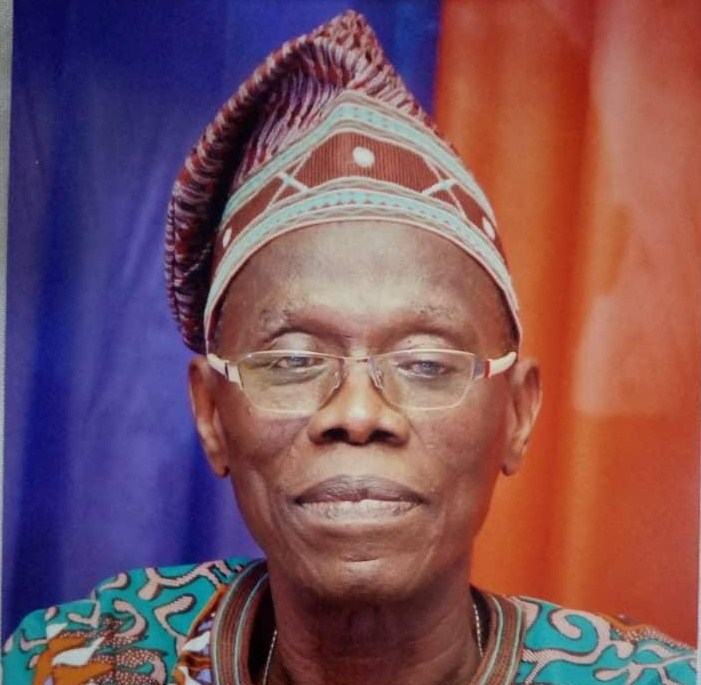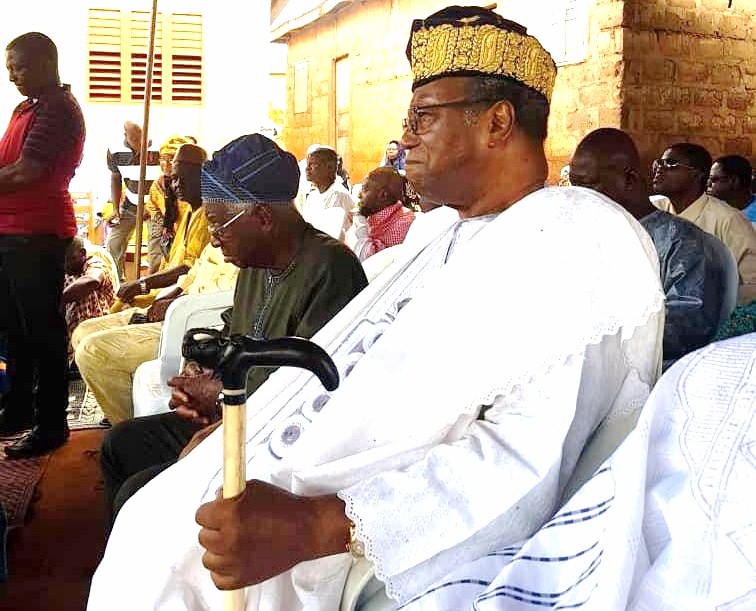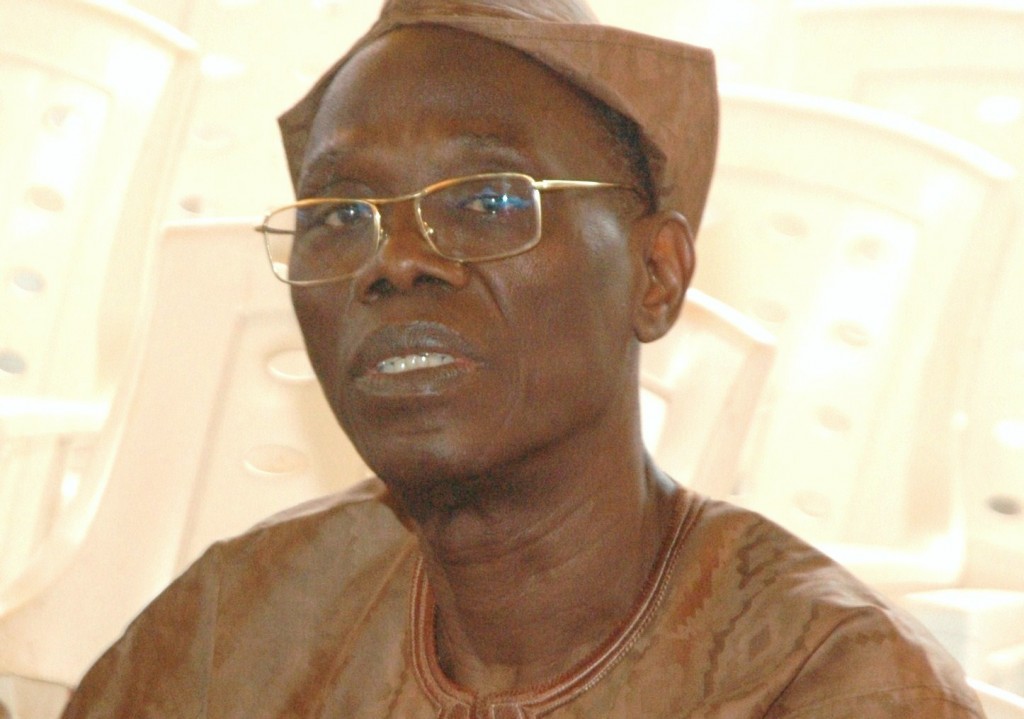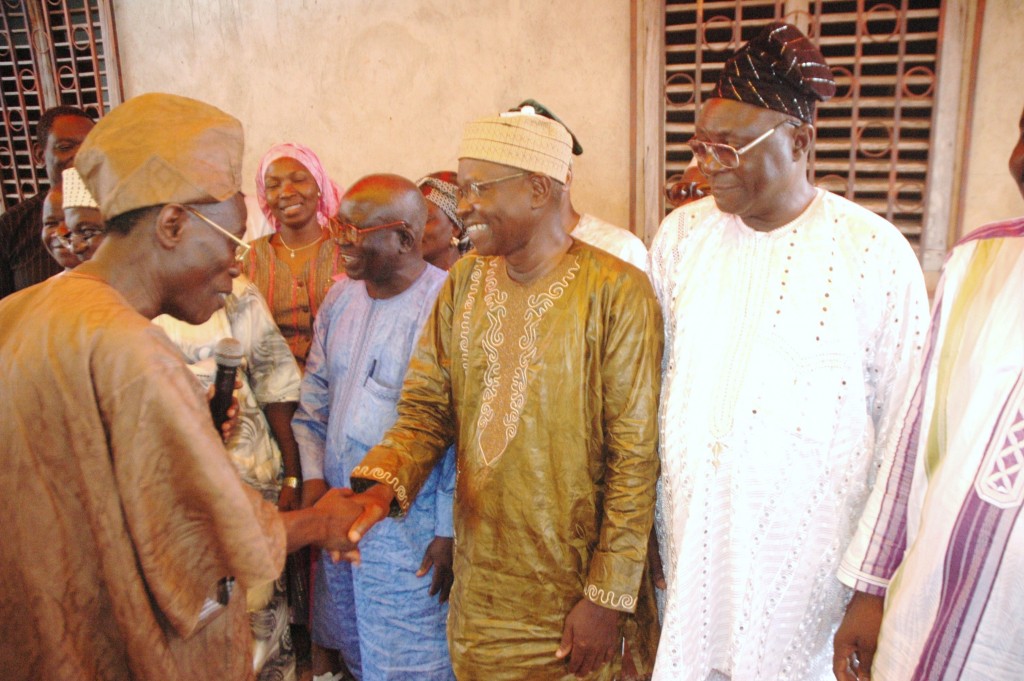West Africa mourns a dedicated people’s servant, Mouftaou Alidou of Benin

Cliquer ici pour la version française
BY SOUMANOU SALIFOU
The little-known French-speaking West African nation of Benin on 31 May lost one of the most dedicated architects of its economy over the past five decades, Mouftaou Alidou, so far the country’s longest-serving Internal Revue Service’s director-general who also helped foster economic development throughout the region and beyond.
Mouftaou Alidou earned a Bachelor’s of Science in economics and graduated from the National School of Taxation of Clermont Ferrand, in France in 1974. He also received on-the-job practical training in public finances in various institutions—including at IMF headquarters in Washington, D.C. in 1982, and in Bonn and Berlin, Germany.
Upon graduation, Alidou returned to Benin and joined the Internal Revenue Service in 1974. In no time, he climbed the professional ladder and reached the top echelon of the service. Then, in 1990, following the historical “conference of the living forces of the nation” that paved the way for Benin’s embrace of multi-party democracy, Alidou was tapped as IRS director-general by then newly-designated interim prime minister Nicephore Soglo, a retired World Bank administrator who only recently had settled back in Benin.
Soglo, who was elected president of the republic the following year, performed a quasi-miracle by resurrecting Benin’s bankrupt economy from the ashes of 17 years of Marxist dictatorship under Gen. Mathieu Kerekou. Revenues from customs and tax services being the two pillars upon which Benin’s economy rested at the time, the IRS, under Alidou, played a significant part in President Soglo’s economic recovery strategy—along with massive foreign aid. This reporter remembers being told by Alidou in person how then-President Soglo called him several times every week to inquire about incoming tax revenue as part of the president’s strive to fuel the economic recovery.

A well-appreciated pioneer
Alidou went down in history as the initiator of the unprecedented 1994 tax reform, a tax payer-friendly initiative that proved a shot in the arm for Benin’s economy. The reform—which was hailed by economists—inspired tax administrations from neighboring countries, including Burkina Faso up north whose tax professionals traveled down to Cotonou to learn from Alidou.
President Soglo, unmistakably the best president Benin has had so far, so much appreciated Alidou’s performance he decided to promote him as Planning Minister in 1994. But Soglo had to reverse course due to political calculations—apparently beyond his control.
Soglo, now 84, attended Alidou’s burial in person in Cana, 87 miles away from Cotonou where the president resides, despite the short notice. (The Islamic tradition required that Alidou, who died around 5 p.m., be burried by 10 the next morning.) In a passionate eulogy during the burial prayer, President Soglo praised his one-time aide by saying, among other things:
“Africa, not only Benin, has just lost one of its best economists in the person of Mouftaou Alidou.”

A life of tireless service
Alidou led a life of tireless service to his country and to the rest of West Africa. After retiring from his fulfilling job at the Internal Revenue Service in the early 2000s, he served as the Director of Economic and Financial Affairs at the Cotonou Mayor’s office for nearly two decades under no other than his former boss Nicephore Soglo who held that position after losing his bid for re-election in 1996, and later under the latter’s son Lehady Soglo. Alidou juggled this new position and several others.
He initiated, led or co-led countless major economic developments in Benin and outside Benin relating to the management of public and private enterprises: audit of major regional corporations such as the now-defunct Air Afrique airline; reforms geared toward increasing revenues of local administrations; overseeing member states’ adherence to the regulations of the West African Economic and Monetary Union (UEMOA). From 1992 to 1996, he served as president of the collective of the heads of fiscal administrations of UEMOA. From 2015 and on, he served as president of the Network of the Financial Directors of African Cities, FINET.
Burning the candle at both ends
Over the past 45 years, from 1974 when Alidou joined Benin’s Internal Revenue Service until he died at age 76, he devoted his time and energy to serving the public, often to the detriment of his health. This reporter remembers one day in 2010 when lawmakers of the opposition, in order to present a sound criticism of the executive branch’s proposed budget, sought the assistance of the budget expert that was Alidou—who had no party affiliation. At the end of his typical 12-hour workday, the then-Director of the Economic and Financial Affairs of Cotonou Mayor’s office came home with the hundreds-of-pages-long budget proposal and went through it all night, ready the next morning to turn in his counsel.
Alidou had no party affiliation, at least not in the course of the last two decades or so, but he was in no way indifferent to politics. Already in the late 1960s when he was a student in African universities in the Congo, Cote d’Ivoire and Senegal before eventually completing his education in France, he was an active member of then-Dahomey’s students union, UGEED, that protested the ways of the colonial administration. During Benin’s somber era of Marxist rule, he was appointed by the militaro-Marxist regime—like several cadres at that time—to high-level positions in the top echelon of the local administration.
In Benin’s largely-corrupt public administration where many executives, especially in the financial sectors, use their position to enrich themselves illegally, Alidou was the embodiment of honesty. He had a visible dislike for wealth accumulation that shocked many, even in his family. His only material possessions are a house and two small cars.
A dedicated family man

Mouftaou Alidou had no limits when it came to investing his hard-earned money in the education of his five children, four of whom studied abroad, including in Canada, at the high cost everyone knows. He was the first college graduate of a family of renowned shoemakers of Cana, 87 miles from Cotonou, the one-time spiritual capital of the mighty and prosperous kingdom of Danxomê which heroically fought the French army from 1890 to 1894 in its attempt to resist being colonized. He was known as Alidou—his father’s first name—not as Salifou, as a result of an administrative glitch.
Not much is known about the family’s patriarch, Salifou, a member of the royal Yoruba empire of Oyo in present-day Nigeria who was adopted at a young age by an influential resident of Cana who had no children. But Salifou’s oldest son, Saadou, was a spiritual advisor to the kings of Dahomey, providing prayer services to protect the monarchs during the many wars they waged against neighboring kingdoms, including the mighty Oyo empire.
Only a few members of the Salifou family are shoemakers today. Many of them have embraced various occupations, which has led to the family being spread over several other regions of Benin and in Europe, the United States and Canada. The Salifou family now boasts several Ph.D. holders, engineers in various fields, renowned journalists and more, many of whom owe their success to Alidou, a down-to-earth, generous—if sometimes tough—man who lived by the old values of family solidarity.
 As the Salifous mourn their dedicated leader and pray that God welcome him in his kingdom, they believe that from Heaven, their beloved grand-pa, father, uncle, brother, cousin and mentor will grace them with blessings, and continue to shower them with love as he did throughout his busy life devoted to serving.
As the Salifous mourn their dedicated leader and pray that God welcome him in his kingdom, they believe that from Heaven, their beloved grand-pa, father, uncle, brother, cousin and mentor will grace them with blessings, and continue to shower them with love as he did throughout his busy life devoted to serving.


